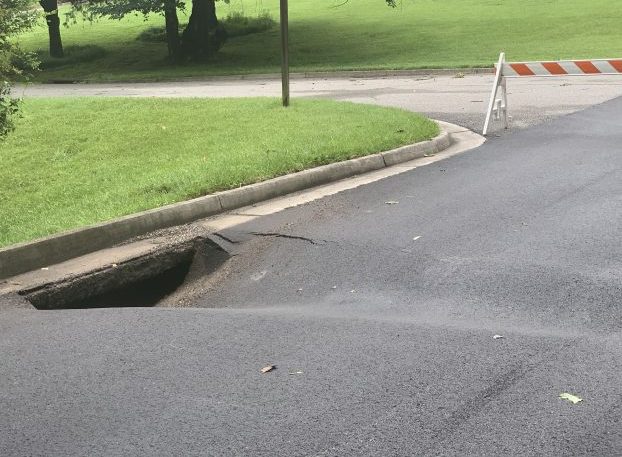The Disinformation Age
Published 3:34 pm Thursday, December 16, 2010
The Information Age-we are told that we live during a time when information is power and that our access to information is unfettered thanks largely to spectacularly advances in technology.
There is no doubt in my mind that the breadth and depth of our access to information is not only virtually immeasurable today, it continues to grow at an exponential rate. Computers are certainly at the center of this information boom, but smart phone technology now puts all this information at our fingertips 24/7 nearly any place on the planet.
There is a certain sense of exhilaration when you can settle the argument over who wrote a song while zooming around the Capital Beltway at 70 mph. Together with the adrenaline rush of circumnavigating Washington, DC, in a car, the combined events can pump more endorphins than running the Boston Marathon.
Trending
But, just like the Capital Beltway, the Information Super Highway is subject to traffic jams; accidents; poor signage; unskilled, aggressive, and passive-aggressive drivers; vandalism; law breakers; hoodlums; and thieves. Yes, at times, the Information Super Highway seems to carry as much junk and disinformation as it does valuable goods and services. At the risk of being politically incorrect, dare I say that taking the wrong off ramp on the information highway can be almost as dangerous as making a wrong turn in Southeast Washington, DC.
You see, the problem with the internet is the same thing that makes it so wonderful-it is cheap, unbridled, uninhibited, uncensored, accessible, unaccountable, and run by highly opinionated people. In short, for every true fact found on the internet, there seems to be at least as many distortions or down right untruths presented. And the opinions expressed, oh my. I have heard it said that opinions are like posteriors, everyone has one; but, on the internet two or three seems to be more the norm. I am reminded of what Dick Cheney once said, “You have the right to free speech, but that does not make you right.” Or, as Al Simpson often said, “You are entitled to your own opinion, but not your own set of facts.” If ever there was a time for people to exercise discernment and even skepticism in what they read, it is now.
I cannot count the times that someone has forwarded an email to me that was so glaring in its distortions that I felt compelled to correct the Sender even at the risk of offending them. The problem is that it is so easy to Forward an email to your group of friends that we do it without ever thinking that what we are Forwarding may be wrong.
I know there are fact checking websites out there such as FactCheck.org and Snopes.com, but it seems even those sites have their own agenda and are not always as objective as they lead you to believe.
The problem seems to have its origins in an age old phenomena-if you see it in print, it must be true. I don't know when or why this became part of the information-processing norm, but I can tell you that if people read it they believe it is true and that is scary. What makes it worse is a new journalistic ploy of making an outlandish and unsubstantiated statement in an opinion piece for the editorial page. Opinion pieces are not held to the same journalistic standard as regular news stories. The danger is that often times op-eds are quoted in subsequent news stories where the reader assumes the reporter has done their due diligence and fact checked their story.
I have personally been the victim of this new kind of character-assassination journalism when the New York Times published a lead editorial impugning my work and character based on mistruths and distortions put out by an environmental group. In the end, these lies were reprinted nearly 300 times in newspaper stories across the country. Google Paul Hoffman and the Department of the Interior and you will find many disparaging stories about me. They are not true, but they are “in print” nonetheless. And it is amazing how many people who do not know you or your work will believe the worst about you because they read it in print or on the internet.
Trending
Unfortunately, these kinds of disinformation stories gain traction in the eyes of the reading public because reporters do not take the time to verify their information or contact the victim of the story to hear their side. There is an old saying that says, “Bad news travels at the speed of light; good news is lucky to get up to the speed of sound.” Unsubstantiated and misinformed emails can go around the world in seconds. And if seeing it in print makes it true, then seeing three or four times in your Inbox must mean it is accurate. As unfortunate as that is, it is real and that is why in the Information Age it is more important than ever that you be appropriately skeptical and take the time yourself to learn the rest of the story. Before you hit the Forward button on your email program, ask yourself, “Do I know this to be true?” If you can't answer that in the affirmative, then the Biblical advice will serve you well, “Everyone should be quick to listen, slow to speak and slow to become angry.”
(Paul D. Hoffman is a California native who spent most of his life in Cody, WY. He has been politically active and has spent much of his career in public service at various levels of government, including serving as State Director to then-congressman Dick Cheney, and in non-profit organizations. From 2002 to 2008, he was a Deputy Assistant Secretary at the US Department of the Interior in Washington, DC. He is a resident of Prince Edward. He can be reached at editor@TalkItUpAmerica.com)





